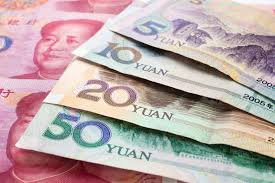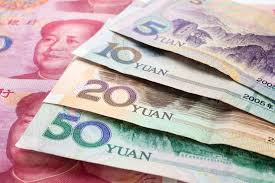
The Chinese currency would not be used by the Chinese authorities as a means to gain competitive advantage in trade, said the Chinese Premier Li Keqiang.
This statement came just hours after China enhanced tariffs on import from the United States albeit in a much softer tone than the US had done when it imposed tariffs on Chinese goods worth $200 billion amid rising trade tensions between the two largest economies of the world.
While not directly mentioning the ongoing escalating trade war with the US, Li stressed allegations about Beijing deliberately devaluing its currency for making trade gains was “groundless”. He was speaking at the World Economic Forum event in the port city of Tianjin in China.
“One-way depreciation of the yuan brings more harm than benefits for China,” he said. “China will never go down the road of relying on yuan depreciation to stimulate exports.”
That will not be done by China to pursue “thin profits” and “a few small bucks”, he said.
No problems would be solved by unilateral trade actions, Li said and added that world authorities should strive to uphold the world’s multi-lateral trading system.
These comments lifted the yuan. The currency has fell by about 9 per cent since mid-April this year.
In its latest retaliatory action, China imposed tariffs on American goods worth $60 billion in response to the tariffs imposed on $200 billion of Chinese goods by the Trump administration.
Prior to this, the United States had imposed import tariffs on Chinese goods worth $50 billion in an effort, according to the Trump administration, to put pressure on China to make changes to its trade policies, polices of transfer of technologies and subsidy polices for its tecg industry.
The latest round of tariffs on Chinese goods is slated to take effect from September 24 at the current rate of 10 per cent which would be increased to 25 per cent from January 1 next year. According to the forecast by the Bank of America Merrill Lynch, the tariffs would have an impact of a reduction of 0.5 per cent in the growth of the gross domestic product of China for 2019 at 6.1 per cent.
And according to an estimate by Oxford Economics, the organization noted that there could be a fall in its baseline forecast for Chinese GDP in 2019 to below 6 per cent and also said that there is little chance of easing of trade tensions in the near term.
“But the likelihood of de-escalation will rise over time as the increasing economic impact in the U.S. will make the Trump team less combative, and China realises that it will be hard to integrate more into the global economy without some concessions regarding its specific economic model,” the note said.
There is however a sense of relief among investors because they anticipate lesser impact from the latest round of tariffs that they had expected. This was reflected in the rise in the Asian markets on Wednesday and the U.S. Treasury yields touching a four-month high.
(Source:www.reuters.com)
This statement came just hours after China enhanced tariffs on import from the United States albeit in a much softer tone than the US had done when it imposed tariffs on Chinese goods worth $200 billion amid rising trade tensions between the two largest economies of the world.
While not directly mentioning the ongoing escalating trade war with the US, Li stressed allegations about Beijing deliberately devaluing its currency for making trade gains was “groundless”. He was speaking at the World Economic Forum event in the port city of Tianjin in China.
“One-way depreciation of the yuan brings more harm than benefits for China,” he said. “China will never go down the road of relying on yuan depreciation to stimulate exports.”
That will not be done by China to pursue “thin profits” and “a few small bucks”, he said.
No problems would be solved by unilateral trade actions, Li said and added that world authorities should strive to uphold the world’s multi-lateral trading system.
These comments lifted the yuan. The currency has fell by about 9 per cent since mid-April this year.
In its latest retaliatory action, China imposed tariffs on American goods worth $60 billion in response to the tariffs imposed on $200 billion of Chinese goods by the Trump administration.
Prior to this, the United States had imposed import tariffs on Chinese goods worth $50 billion in an effort, according to the Trump administration, to put pressure on China to make changes to its trade policies, polices of transfer of technologies and subsidy polices for its tecg industry.
The latest round of tariffs on Chinese goods is slated to take effect from September 24 at the current rate of 10 per cent which would be increased to 25 per cent from January 1 next year. According to the forecast by the Bank of America Merrill Lynch, the tariffs would have an impact of a reduction of 0.5 per cent in the growth of the gross domestic product of China for 2019 at 6.1 per cent.
And according to an estimate by Oxford Economics, the organization noted that there could be a fall in its baseline forecast for Chinese GDP in 2019 to below 6 per cent and also said that there is little chance of easing of trade tensions in the near term.
“But the likelihood of de-escalation will rise over time as the increasing economic impact in the U.S. will make the Trump team less combative, and China realises that it will be hard to integrate more into the global economy without some concessions regarding its specific economic model,” the note said.
There is however a sense of relief among investors because they anticipate lesser impact from the latest round of tariffs that they had expected. This was reflected in the rise in the Asian markets on Wednesday and the U.S. Treasury yields touching a four-month high.
(Source:www.reuters.com)





